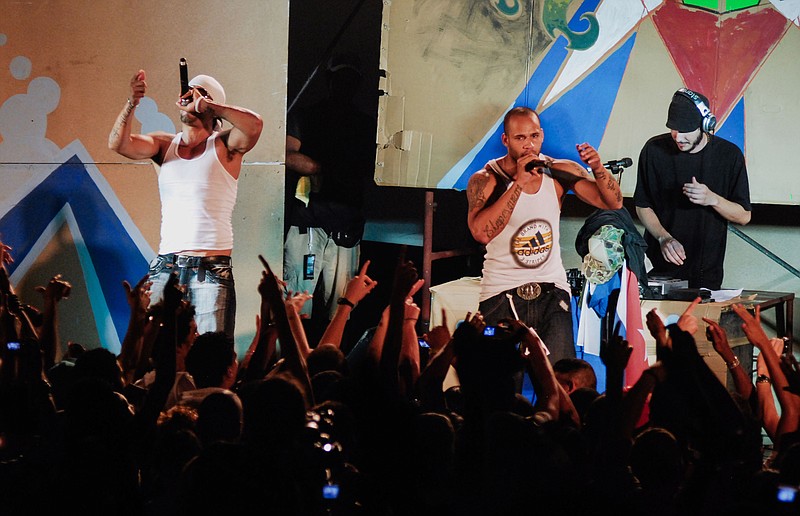HAVANA (AP) - Cuban rappers targeted by a clandestine U.S. program are "victims" unknowingly swept into an effort to spark an anti-government youth movement, the Cuban government said Friday in its first reaction to an Associated Press investigation into the initiative.
Vice Minister of Culture Fernando Rojas described the U.S. Agency for International Development program as "treachery" that drew in rappers Los Aldeanos and other Cuban musicians.
The hip-hop operation was conceived by one of USAID's largest contractors, Creative Associates International, using a team of Serbian music promoters. The Washington-based contractor also led other efforts aimed at undermining Cuba's communist government, including a secret Cuban Twitter text-messaging service and an operation that sent in young, inexperienced Latin American "tourists" to recruit a new generation of activists.
The collection of USAID missions, which were all undertaken over the same period of 2009-2012 and cost millions, failed.
Rojas said Aldo Rodriguez, lead singer of Los Aldeanos, had received backing from the Hermanos Saiz Association, a youth culture group with close government ties, and "I don't think he's lost that support."
"He, like all victims, needs to think," about the sources of his backing, Rojas told reporters on Friday when asked about the USAID story. "There's treachery in the way these organizations operate."
The U.S. plan called for contractors to recruit dozens of Cuban musicians for projects disguised as cultural initiatives but really aimed at stoking a movement of fans to challenge the government. They filmed TV shows and set up a social network on the island to connect some 200 musicians and artists who would be encouraged to start a social movement. Artists were flown to Europe ostensibly for concerts and video workshops, but the real aim was to groom them as activists.
Rodriguez, who now lives in Tampa, Florida, told The Associated Press late Thursday that the effort had never influenced his lyrics or actions.
"Probably what they wanted was to help the music movement because Cuba is really a country that doesn't have anything," he said.
"Neither the American government, nor the Serbs, nor the Cuban government, not anyone, can control my thoughts and my heart," Rodriguez said. "I don't belong to the right or the left."
Rodriguez's musical partner, Bian Rodriguez, who also now lives in Florida, said in statement on his Facebook page: "We knew little about the real aim of those people. I think it's important to emphasize that because I haven't needed any subsidy to say what I think and I don't criticize anyone who does because they must have their reasons. This (Cuba) is a country where everything one does is repressed."
Wides-Munoz reported from Miami. Michael Weissenstein in Havana contributed to this report.
Related video report:

